What Are the Best Self-Hosted Password Managers in 2025?
Comparing the 7 best self-hosted password managers available in 2024.
Publish date: 11/18/2024

Comparing the 7 best self-hosted password managers available in 2024.
Publish date: 11/18/2024

With the increasing amount of online accounts you have to maintain nowadays, password managers have never been so useful.
Providing you can keep your password manager itself secure, it allows you to conveniently use strong and unique passwords on all of your accounts.
Ultimately, there are two different types of password managers, cloud-based password managers, and self-hosted password managers.
Either has its respective pros and cons:
| Feature | Self-hosted password managers | Cloud-based password managers |
|---|---|---|
| Control | Full control over data and infrastructure | Data stored on third-party servers |
| Security | Secure if configured correctly and maintained | Depend on the security measures of the service provider |
| Privacy | No third-party access to your data | Potential access by service provider |
| Cost | Free, besides hosting expenses | Subscription-based, ongoing costs |
| Setup and maintenance | Requires technical expertise to set up and maintain | Easy setup, and maintenance handled by the provider |
| Scalability | Limited by personal or organizational resources (however, password managers usually aren't too resource-extensive) | Easily scalable with the provider’s infrastructure |
| Features | Potentially more customizable (depends on your choice) | Often come with a comprehensive set of features |
| Support | Community or self-supported | Professional support from the provider |
| Updates | Manual updates are usually needed | Automatic updates provided by the service |
Basically, self-hosted solutions provide enhanced control and privacy but require technical know-how and resources for setup and maintenance, and cloud-based solutions offer convenience and professional support at the cost of some control and privacy.
For many, a self-hosted password manager is ideal because they aren't too hard to set up (and secure), pretty cheap to host, and you're guaranteed to be the only one with access to your information.
However, even once you've made the decision to go with a self-hosted password manager, it can be hard to decide which one to go with. There are quite a few options.
That said, our goal in this article is the explain and compare the 7 best self-hosted password managers to help make that decision easier for you.
Let's dive in:
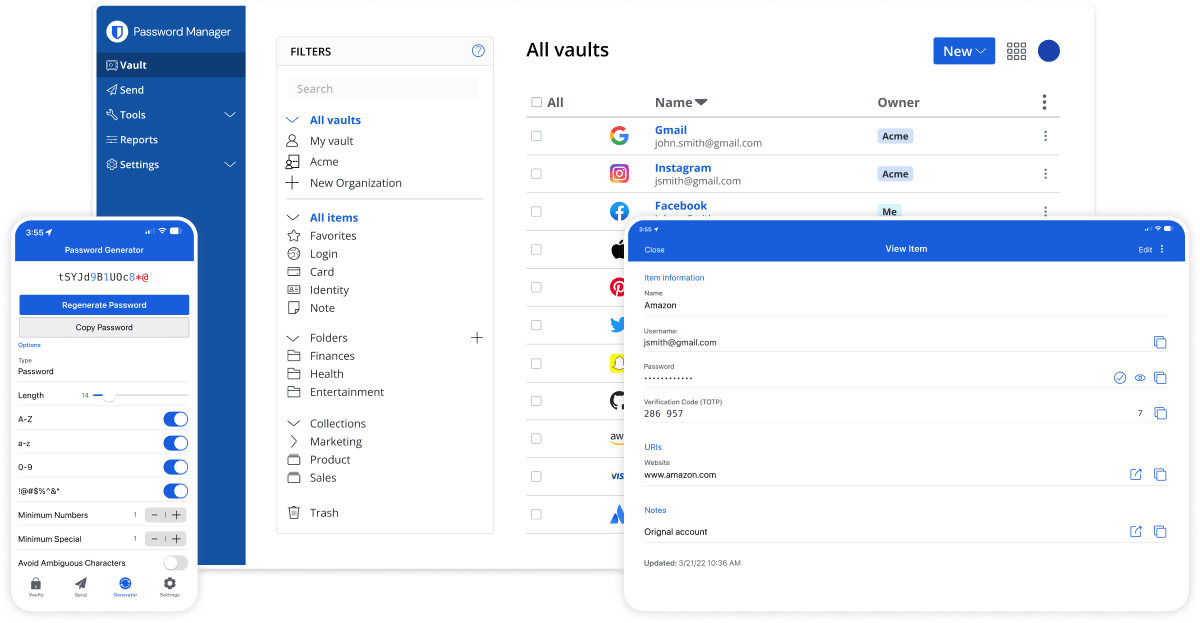
Bitwarden is one of the most well-known self-hosted password managers.
It provides a comprehensive set of features, including secure password storage, password sharing, and integrations with other services.
Bitwarden is open source and frequently audited, ensuring transparency and security.
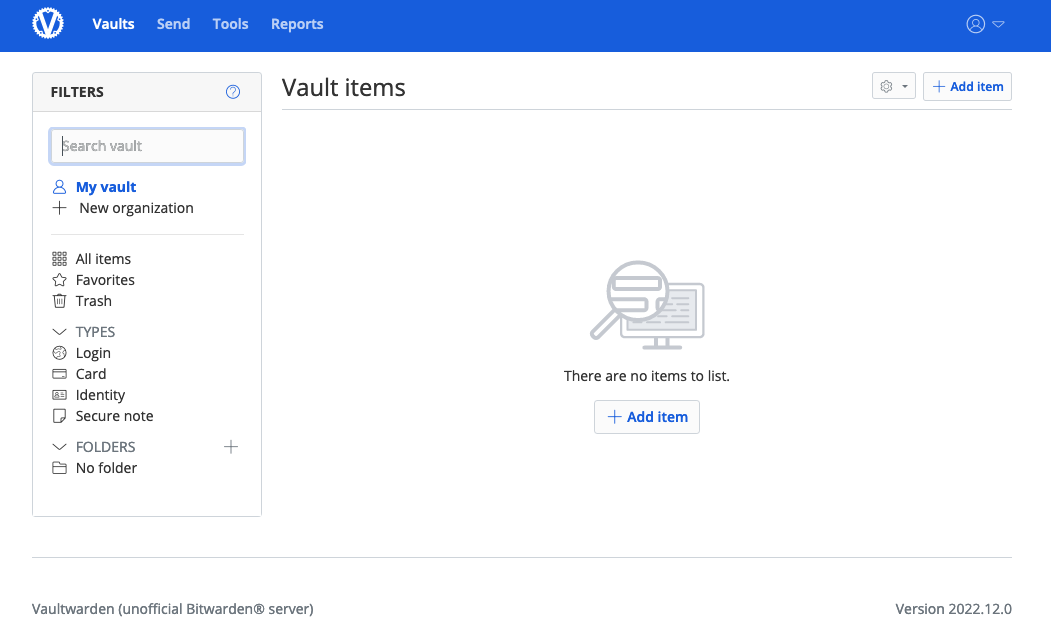
Vaultwarden is a lightweight, self-hosted version of Bitwarden.
Written in Rust, it offers similar functionality to Bitwarden but with a reduced resource footprint.
Vaultwarden is compatible with all Bitwarden clients.
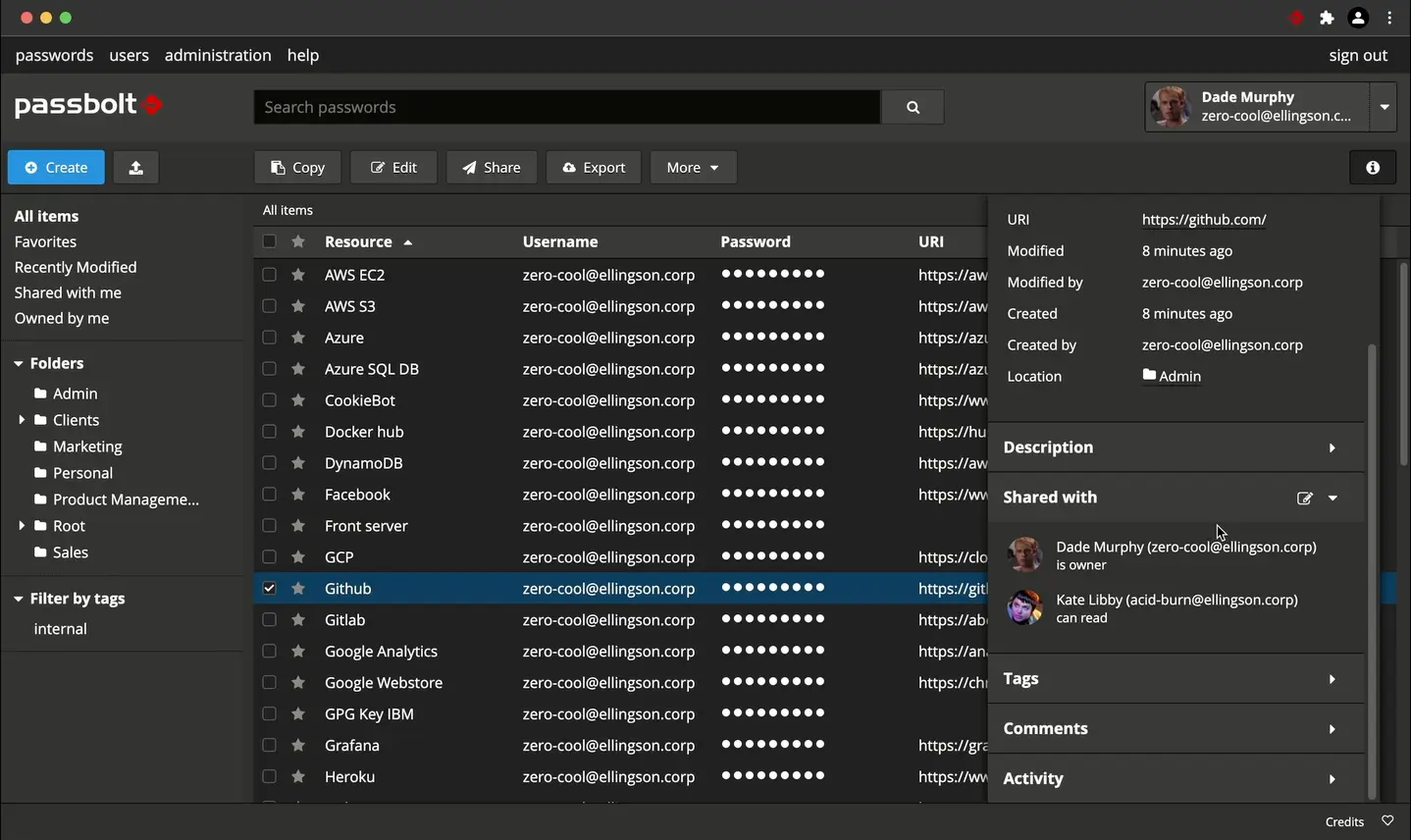
Passbolt is designed with teams and scalability in mind.
It offers a user-friendly interface and focuses on secure password sharing among team members.
Passbolt emphasizes security and transparency, with regular third-party audits.
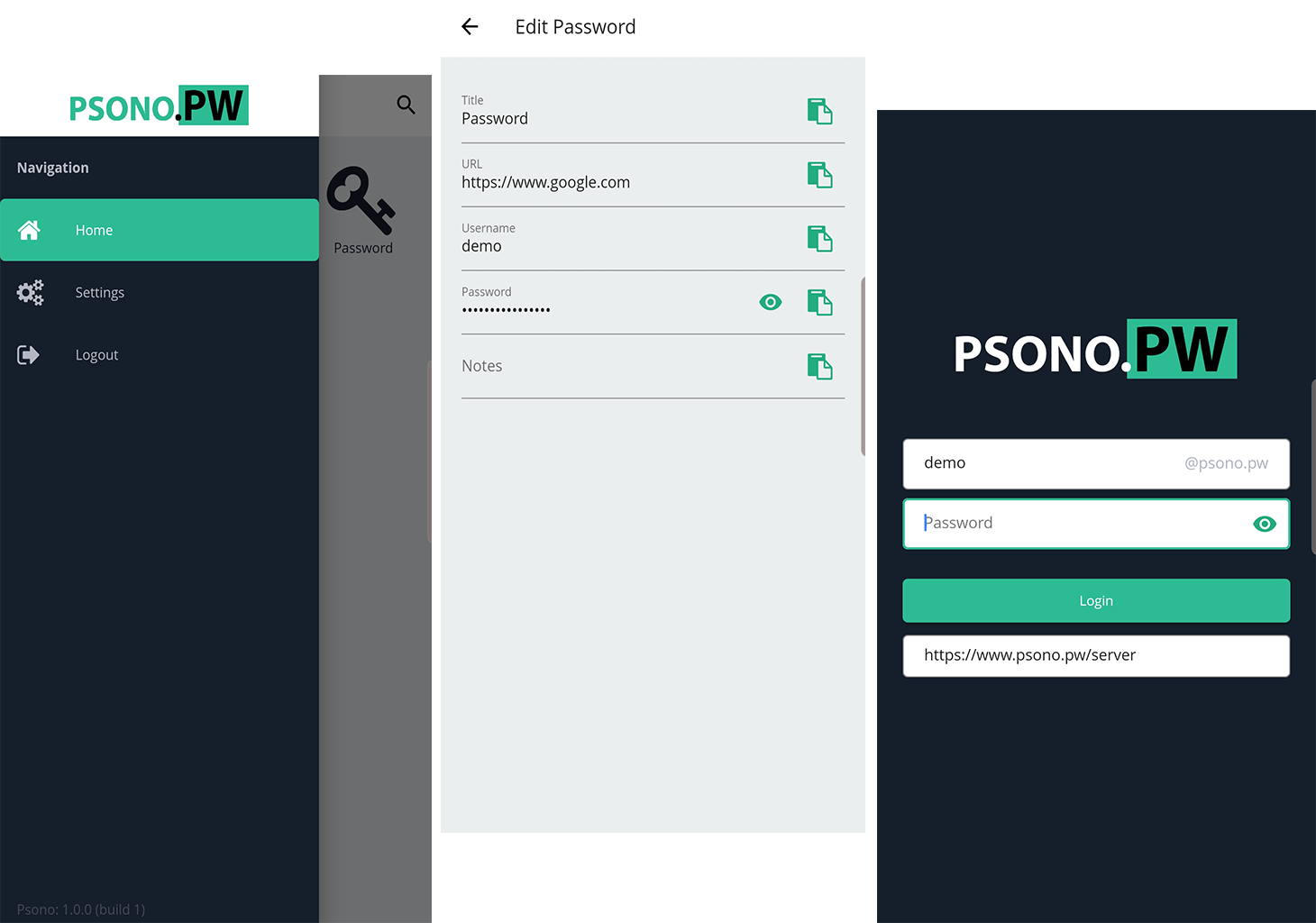
Psono is a flexible password manager aimed at teams.
It's one of the newer options on the list, but it's gaining attention quite fast.

Passky is a lightweight and simple password manager designed with privacy and security in mind.
It offers a straightforward user experience and focuses on providing essential password management features.
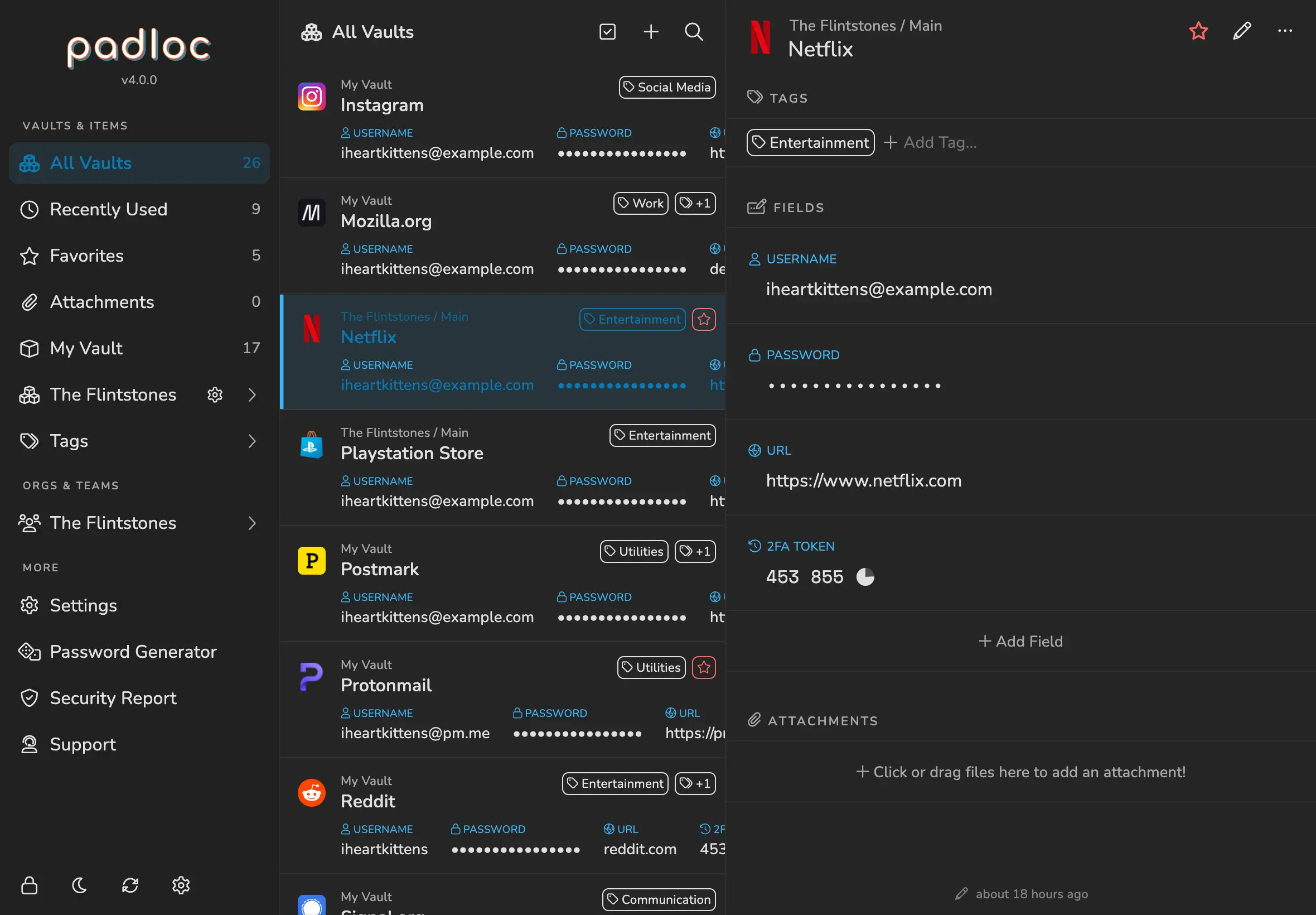
Padloc is designed to be user-friendly and visually appealing.
It emphasizes ease of use and security, with a clean interface and third-party audits.
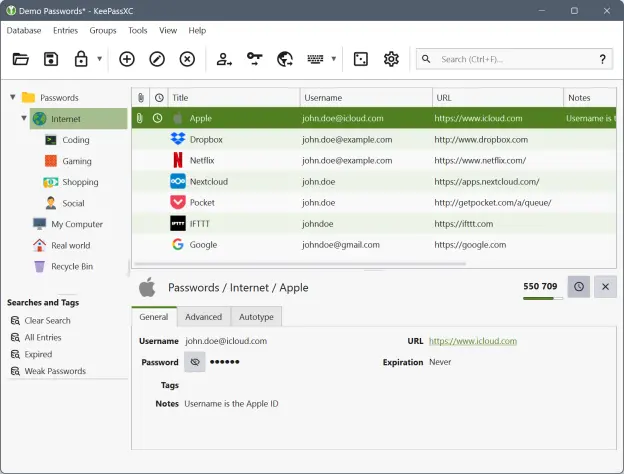
KeePassXC is a community fork of KeePass, providing a cross-platform, feature-rich password manager.
While it doesn't fit perfectly into the self-hosted model, (it's client-sided), it can be integrated with other self-hosted solutions like Nextcloud for synchronization. It's too notable as an "old reliable" to not give an honorary mention here.
You can also check out KeeWeb.
| Password manager | Pros | Cons | Best for |
|---|---|---|---|
| Bitwarden | Open source, frequent security audits, cross-platform (web, mobile, desktop), feature-rich (password generation, autofill, secure sharing), enterprise features (advanced user management, security features) | Complex setup, resource-intensive | Individuals and organizations needing an extensive, feature-rich password manager with enterprise capabilities |
| Vaultwarden | Resource efficient (minimal system requirements), compatible with Bitwarden clients and extensions, includes many premium Bitwarden features for free | No official third-party audits, relies on community support and development | Users seeking a lightweight alternative to Bitwarden with similar features |
| Passbolt | Strong security focus (regular audits, transparent practices), excellent user management for teams, intuitive interface, seamless browser integration | Requires browser extension for full functionality, some advanced features require a paid subscription | Teams and organizations needing secure password sharing and management |
| Psono | Comprehensive feature set (supports various secret types, secure sharing), strong security (modern cryptography, third-party audits), user-friendly interface, good documentation | Primarily developed by a single developer, browser extension can be less intuitive | Teams looking for a flexible and secure password manager with multi-user support |
| Passky | Lightweight (minimal system requirements), strong emphasis on privacy and security, free and open source | Basic feature set (lacks advanced features), no third-party security audits, limited multi-user support with no sharing features | Individuals seeking a simple, privacy-focused password manager |
| Padloc | User-friendly interface, security audits for transparency, cross-platform availability (various platforms) | Requires building and maintaining browser extensions for self-hosting, a small development team may slow updates and improvements | Users looking for an easy-to-use password manager with strong security practices |
| KeePassXC | Feature-rich (supports a wide range of features and plugins), cross-platform availability (all major operating systems), long history of strong security (uses strong encryption) | Requires additional tools for synchronization across devices, manual setup can be complex | Tech-savvy individuals and small teams needing a secure, feature-rich password manager |
Choosing the right self-hosted password manager depends on your specific needs, technical expertise, and security requirements.
Honestly, any of these options can work well.
I suggest trying out whichever password manager caught your eye first, and if you don't enjoy the user experience, simply switch it out to another option on this list!
The joy of self-hosting is there are an abundance of free options available out there, so take advantage of it.
By the way, xTom is an infrastructure-as-a-service provider that's been around longer than a decade. We offer things like colocation, dedicated servers, transit, and beyond.
However, our VPS hosting brand is perfect for self-hosting a password manager. Our cheapest NVMe KVM VPS is less than the price of a cup of coffee per month and can host many of your favorite applications, including your favorite password manager.
Do consider giving us a look at for your digital infrastructure needs; we would love to take care of you.
Thanks for reading!